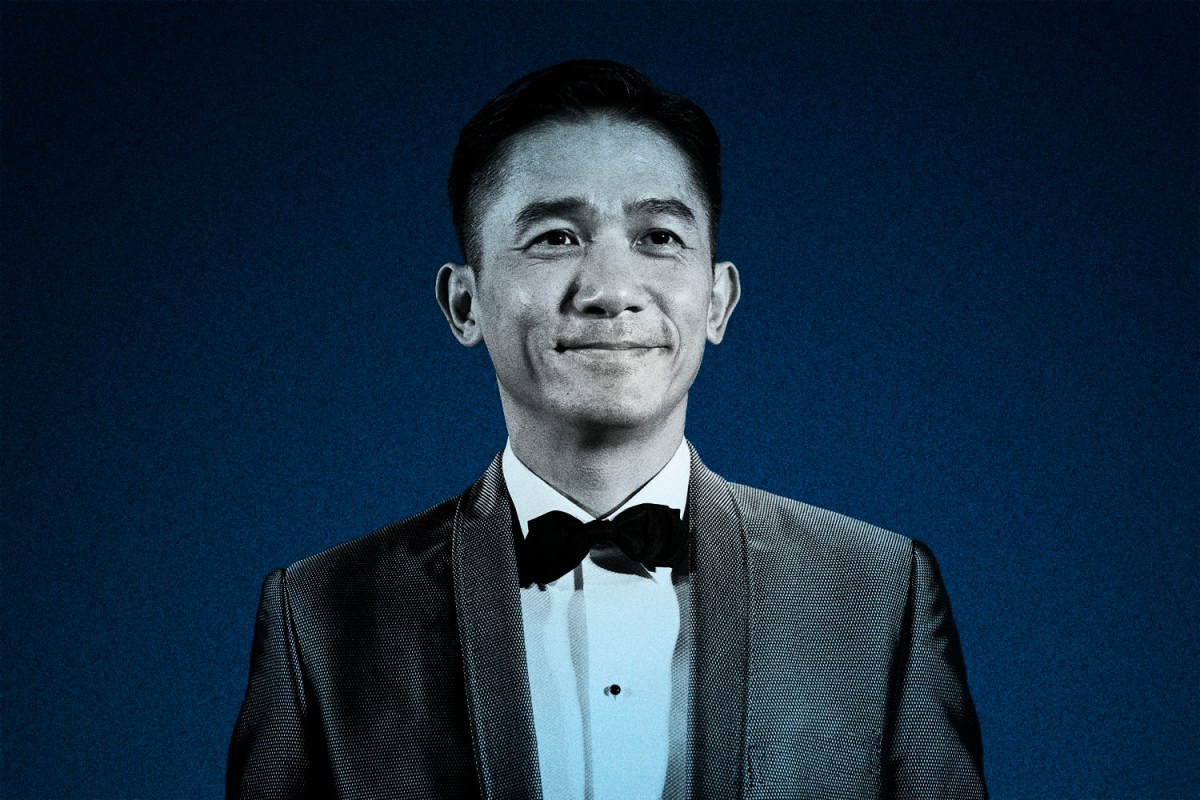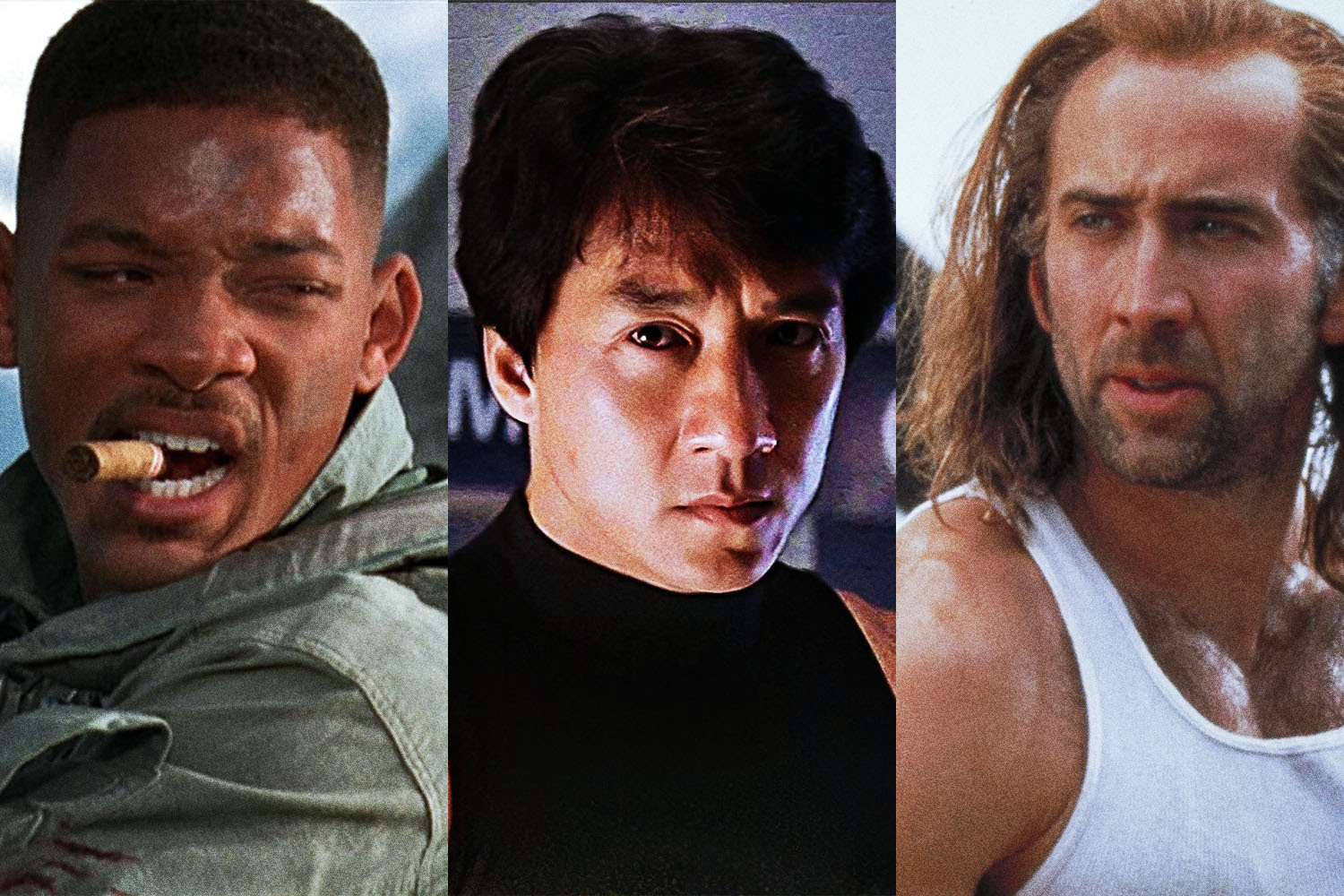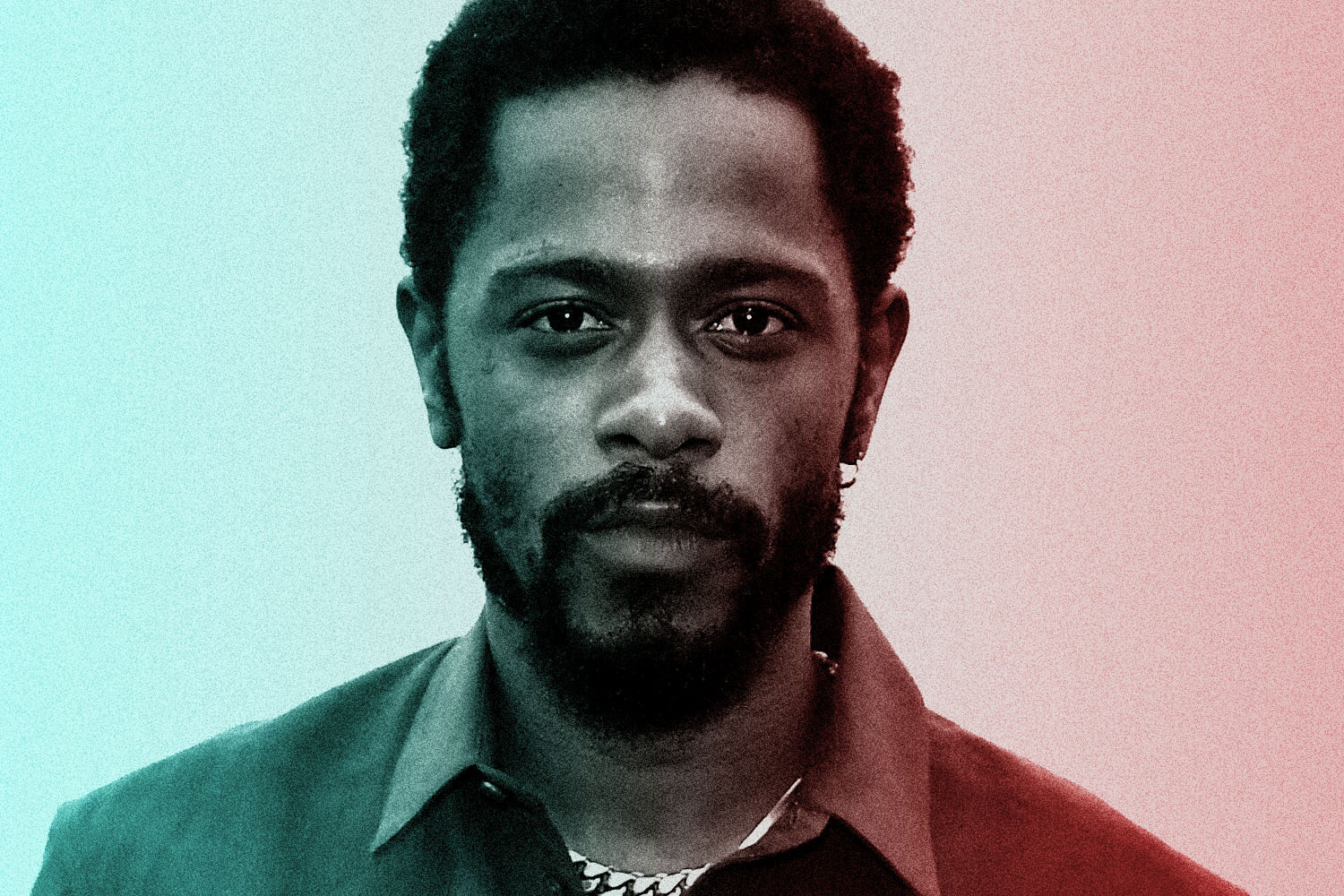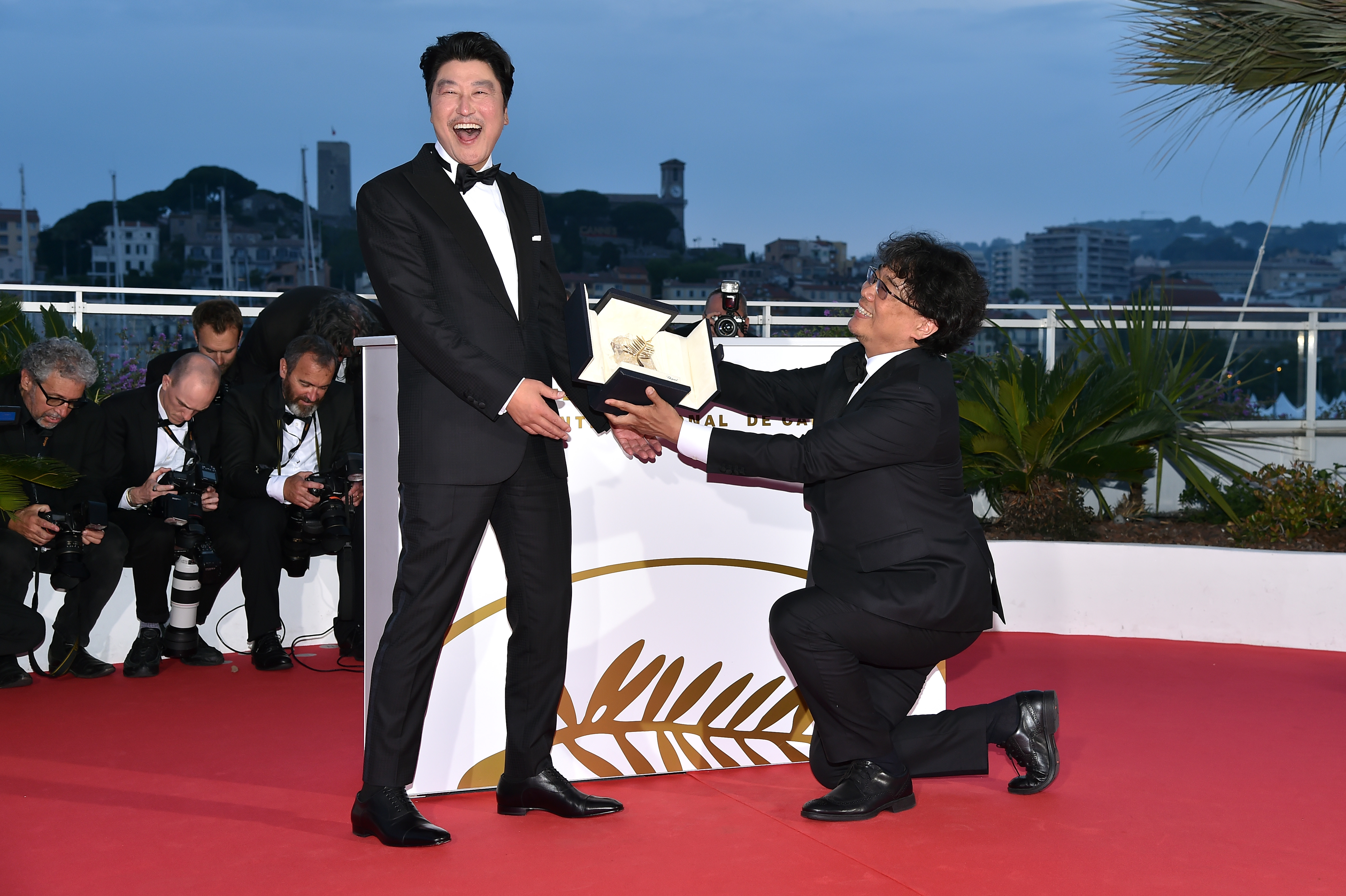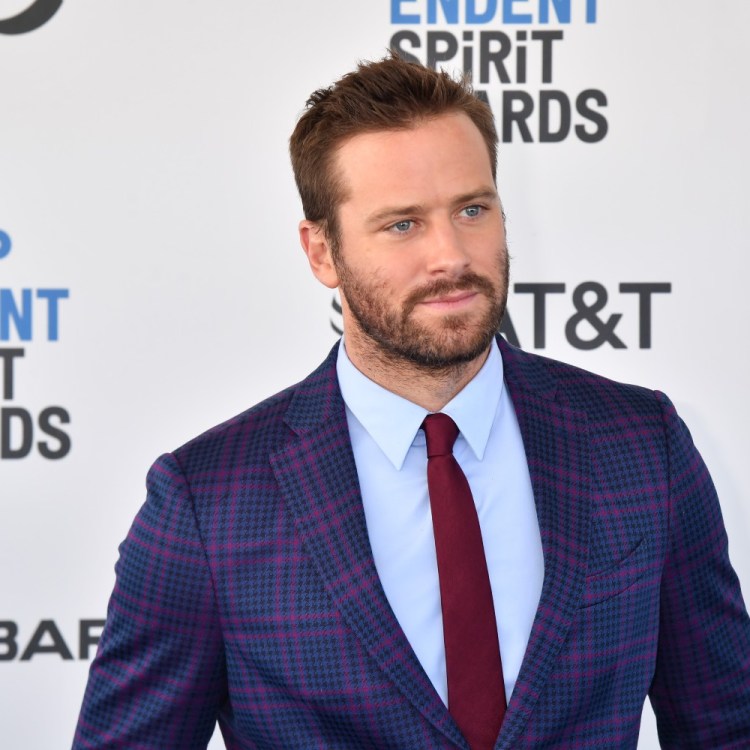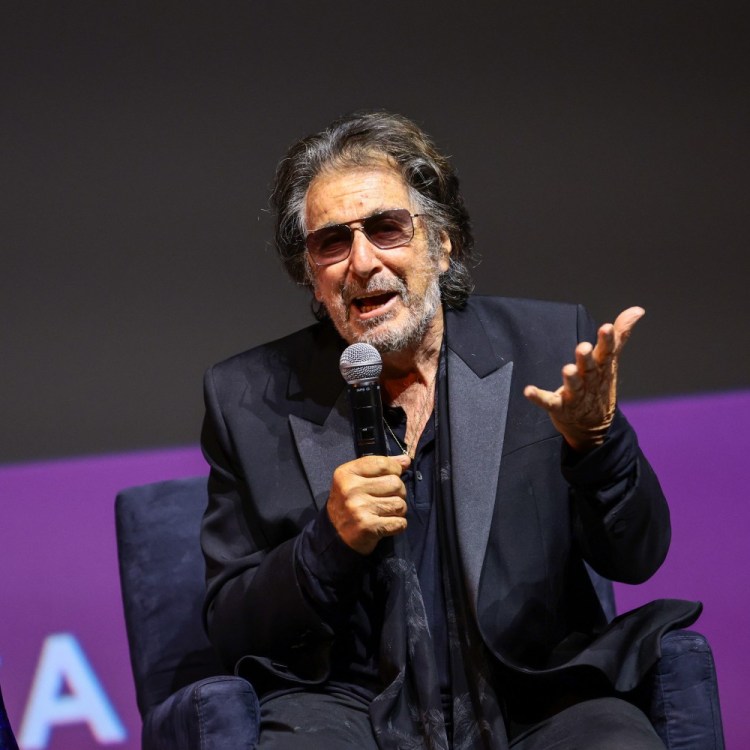Touted as the first Marvel superhero movie with Asian lead actors and an Asian director, Shang-Chi and the Legend of the Ten Rings retrofits a 1970s comic book into the Marvel Cinematic Universe. It’s the feature debut for Simu Liu as a martial arts master who has to confront his family’s past secrets. Also starring are Awkwafina as Shang-Chi’s stateside friend Katy and Michelle Yeoh as Shang-Chi’s aunt, herself a martial-arts expert.
But the movie’s secret weapon is Tony Leung Chiu-wai, who plays Shang-Chi’s father Wenwu. One of the greatest actors of his generation, Leung has collaborated with directors like Hou Hsiao-hsien, John Woo, Ang Lee and, perhaps most famously, Wong Kar-wai. He brings unexpected depth and nuance to his role as a criminal mastermind, following a path set by Oscar-winning Marvel supervillains like Jeff Bridges (Iron Man) and Sir Ben Kingsley (Iron Man 3).
If viewers in the U.S. know Leung at all, it’s probably for In the Mood for Love, a romance set in the early 1960s for which he won the Best Actor Award at the Cannes Film Festival. Or maybe they’ve seen what he jokingly called his “dirty movie,” Lust, Caution, Ang Lee’s erotic spy thriller set in WWII.
But Leung has been a huge presence in Hong Kong media for some three decades. Not just an award-winning actor, he’s had a successful career as a pop singer and TV personality. (He even duets with Cantopop superstar Faye Wong in the cross-dressing comedy Chinese Odyssey 2002.)
Like his friend Stephen Chow, Leung started out in television, hosting a children’s show before appearing in the Police Cadet series with his future costar Maggie Cheung. He transitioned to movies in the early 1980s, starring in comedies and dramas before winning Best Supporting Actor at the Hong Kong Film Award for the gangster tragedy My Heart Is That Eternal Rose (photographed by Christopher Doyle).
Leung’s next film, Hou Hsiao-hsien’s A City of Sadness, a political drama in post-WWII Taiwan, won the Golden Lion at Venice. Throughout his career, Leung has alternated between mainstream hits and challenging indie films.
Leung became a star during the heyday of Hong Kong films, when the industry was cranking out up to 200 features annually. He performed in as many as seven movies a year, building a reputation as a hard worker who delivered no matter where the script took him. He can play anything: lovesick suitors, tragic gangsters, bumbling underlings, naïve grifters, reporters, monks, killers. His open, affable features made him an ideal romantic lead, but he’s always been able to set them aside and harden his persona to cruelty, violence, sadism.
As he established himself, Leung teamed several times with heartthrob Andy Lau, made a half-dozen features with Wong Kar-wai, and worked repeatedly with Maggie Cheung. But he has also showed a willingness to experiment, like playing a poet pimp in Trần Anh Hùng’s hallucinatory drama Cyclo.
Two films he made with John Woo established his bona fides as an action hero. Bullet in the Head was an unhinged drama about three low-level cons who flee Hong Kong for Vietnam only to find themselves imprisoned in a concentration camp. Then came Hard Boiled, a big-budget bullet ballet in which he held his own with Chow Yun Fat.
At the end of the film, Leung and Chow are besieged by terrorists in a hospital, chased down corridors and through operating rooms until they take refuge in an elevator. Leung accidentally shoots a cop as the doors close, and his reactions as the scene plays out show all his skills as an actor.
Leung made a strong impression in Wong Kar-wai’s Days of Being Wild, but it was his lovesick cop in Wong’s Chungking Express that really won over viewers. Wong would exploit Leung’s brand of helpless romanticism to its fullest in In the Mood for Love, a film about unrequited desire that won Leung a Best Actor award at the Cannes Film Festival. “I hated my costume,” he told me later. “So much oil in my hair that I couldn’t wash it out at night.”
Leung was plied with Hollywood offers during his In the Mood for Love publicity tour, but he wouldn’t take roles he felt were racially demeaning or insensitive. He was equally careful about his choices in Hong Kong. He didn’t mind appearing in madcap comedies and sentimental romances, but he tended to avoid horror and extreme violence.
Which makes The Longest Nite that much more interesting. In it, he’s an unashamedly corrupt cop who steals drugs, frames innocent bystanders, pits triad gangs against each other and sinks to depths rarely reached in his other roles. It was produced by Johnnie To’s Milkyway Image, for many years the premier studio in Hong Kong.
The Longest Nite opened right after Happy Together, where Leung and Leslie Cheung played lovers in South America, and Flowers of Shanghai, a gorgeous period piece directed by Hou Hsiao-hsien and photographed by the remarkable Mark Lee Ping-bing. And yet Leung was content to follow up such heavyweight titles with the throwaway comedy Timeless Romance.
Leung worked with cinematographer Christopher Doyle again in Hero, an all-star wuxia film directed by Zhang Yimou. Leung joined Jet Li and Maggie Cheung as assassins determined to kill the King of Qin. It was released in the U.S. by Miramax at the behest of Quentin Tarantino.
That same year Leung appeared in Infernal Affairs, for many the high-water mark of modern Hong Kong cinema. The story follows competing informers, one a gangster who infiltrates the police department, the other a cop working in the triads. Leung is spectacular as Chan, an undercover cop who endures years of misery in his effort to bring down Eric Tsang’s gang. The actor, a practicing Buddhist, embraced the film’s vision of destiny and reincarnation. (Its Chinese title translates as Unceasing Path.)
Directed by Andrew Lau and Alan Mak, Infernal Affairs was followed by two equally fascinating sequels. The movie was later remade by Martin Scorsese as The Departed, the film for which he won his directing Oscar.
Wong Kar-wai spent years trying to make The Grandmaster, his version of real-life martial-arts legend Ip Man. (Donnie Yen starred in a separate Ip Man franchise.) It took years to shoot and edit as well, in part because Wong prepared three separate versions. (He once joked to me that he only stopped shooting because the film stock he was using was discontinued.)
Wong shot all the action sequences before anything else, spending 30 consecutive days on one fight in the rain at night. Leung threw himself into the role, breaking his arm twice during the production. “I was very sick after every single action scene in this picture,” he told me. Leung trained for 18 months. He called the experience “a nightmare.”
Leung speaks fluent English, a decided advantage when it came to casting Wenwu. And The Grandmaster proved that he could handle all the demands of Shang-Chi‘s action scenes.
What may be harder for viewers to catch is the performer’s sense of humor. Asked why he doesn’t make more movies, he deadpanned, “I’m a lazy person.” He delighted in showing guests at a party for In the Mood for Love how to eat drunken shrimp. “Bite the back first,” he demonstrated, neglecting to tell everyone that the shrimp were still alive.
For his next project, Leung reteams with Andy Lau on Once Upon a Time in Hong Kong, based on a real-life corruption scandal in the 1980s. Viewers can be certain of one thing: Leung will deliver a compelling performance.
Movies mentioned:
Shang-Chi and the Legend of the Ten Rings (Opens September 3 in theaters)
In the Mood for Love (Criterion)
Lust, Caution (Amazon Prime and other streaming services)
Chinese Odyssey 2002 (Vudu)
My Heart Is That Eternal Rose (Daily Motion)
A City of Sadness (Internet Archive)
Cyclo (YouTube)
Hard Boiled Blu-ray (YouTube)
Bullet in the Head (Internet Archive)
Days of Being Wild (Amazon Prime)
Chungking Express (Criterion)
The Longest Nite (iQiyi)
Happy Together (Kanopy)
Hero (Amazon Prime)
Infernal Affairs (Apple TV)
The Grandmaster (YouTube)
This article was featured in the InsideHook newsletter. Sign up now.
